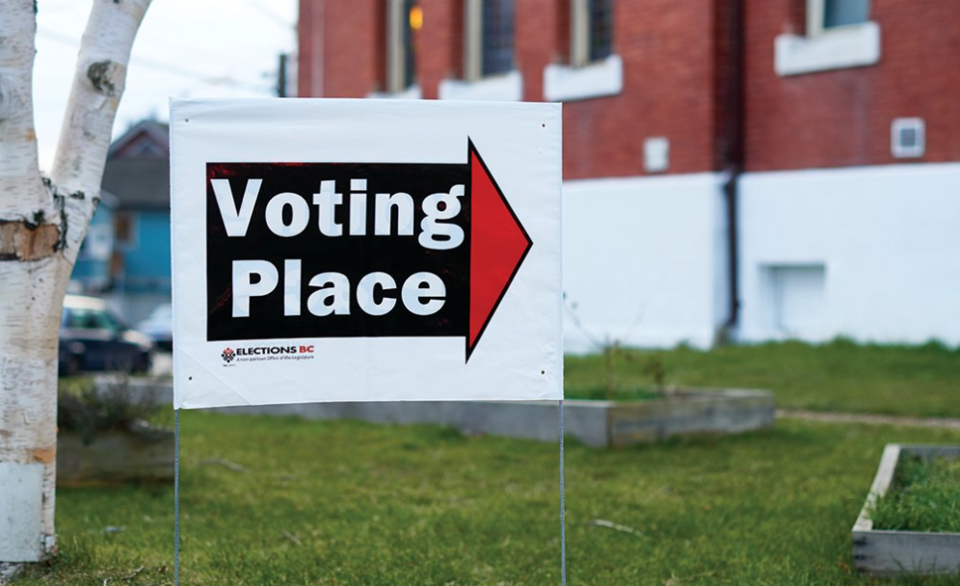Note: I had just completed a column on the upcoming provincial election when a bomb dropped: the BC United Party (BCUP)—formerly the Liberal (In Name Only) Party of BC until the name change last year—was officially suspending its campaign. Party leader Kevin Falcon had dropped out of the race and several members of the party would be switching over to the BC Conservative Party (BCCP). With a deadline and vacation pending, I had to make some changes and leave some things vague. Sorry...
These days people are mad about… well, just about everything. That anger has spilled over into the political realm in every possible way and promises to dominate the upcoming provincial election.
The writ drops Sept. 21, but campaigning has been underway a lot longer than that. In truth, it hasn’t let up—not since David Eby took the helm of the BC NDP in 2022. Definitely not since the BC Liberal Party gave up any pretense of being liberal and rebranded as the right-leaning BC United Party in April 2023.
It was a strange move that put the United and its members on the same ideological turf as the BC Conservative Party—and inadvertently helped that party become contenders. Some polls even have the BCCP up on the ruling NDP while BC United dropped into a statistical tie with the Green Party for third.
The rise of the BCCP is improbable to say the least. In 2020, the party finished fourth with less than two per cent of the popular vote and zero seats. And that was an improvement, up from 0.5 per cent in 2017.
What gives? Some say the BCCP is riding the coattails of the federal conservatives, which is as good an explanation as any. Their platform—A Common Sense Plan for all British Columbians—is pledging to “axe the tax,” privatize ICBC, privatize health-care, cut government spending, build more pipelines, arrest old-growth forest protesters, remove “ideology” from classrooms, get rid of vaccine mandates for doctors and nurses, etc. It’s the kind of aggrieved, populist, far-right platform I feel federal conservatives would happily endorse, and that’s increasingly popular everywhere.
None of it is what I would call common sense. Putting unvaccinated medical professionals in the same room as seniors, cancer patients and others with compromised immune systems is nothing short of crazy. Our Crown-owned ICBC also offers some of the lowest car insurance rates in the country as the cost of private coverage has soared. And “Axing the Tax” in a province that had more than 400 forest fires burning at one point this summer is irresponsible—and impossible if we want to sell our resources to countries that have carbon taxes of their own.
The fact that so many former BC “liberals” are switching over is also concerning. For me, that suggests their members have no fixed values and were only ever in it for the power it gave them and their backers. Or that they were pretending to be liberals to mislead voters who equate “liberal” with “centre-left.” There’s nothing liberal about the BCCP platform.
The ruling BC NDP has also been losing support. Their drug decriminalization efforts, while well meaning, failed. Drug users still died at roughly the same rates and for a while people felt a lot less safe in parks and public buildings where hardcore addicts were openly consuming drugs.
Their initiative to force communities to allow up to four or even six housing units on every single-family lot has also met with a lot of resistance from communities that literally just finalized their provincially mandated Official Community Plans that already identified areas for increased density.
I’m also personally disappointed the NDP failed to support the First Nations-led 2030 Olympic Winter Games bid. I’ve always said it doesn’t make sense to host the Olympics—once. Aside from a meaningful opportunity for reconciliation, a second kick at the can would have drawn billions of new investment in housing, transit and infrastructure the province needs.
The BC Green Party might be in a position to capitalize on the NDP’s mistakes, but they’ve been struggling with leadership, continuity, and finding candidates.
Over the next couple of months, British Columbians will be bombarded with political messaging. I’m not hopeful it will be measured, respectful or completely truthful. It will probably be dirty. And angry enough to appeal to all the angry people out there who want to pay lower taxes while also expecting government to solve all our problems.
I feel the tone misses the mark. As much as candidates will try to appeal to the public’s self-interest, anger, and willingness to blow everything up to start over, I believe most people are really looking for something to unite us—besides being mad at everything.
While that sounds hokey, I believe people are angry these days because—deep down—we're all scared. There’s climate change. There’s war. There’s a housing and affordability crisis that has disenfranchised whole generations of younger Canadians. There’s an ever-looming economic crisis predicated on the fact the economy has become a pyramid scheme to enrich a handful of billionaire narcissists while the middle class struggles. There’s uncertainty about everything.
That's why I feel this is clearly a “we” time in history. There are solutions to all of our problems that we all need to feel part of—even if it’s just paying slightly higher taxes to get the things we want and need.
Whatever you do, don’t vote angry. Or put your trust in politicians who are clearly playing on your fear and anger to get votes. We’re better than this.




